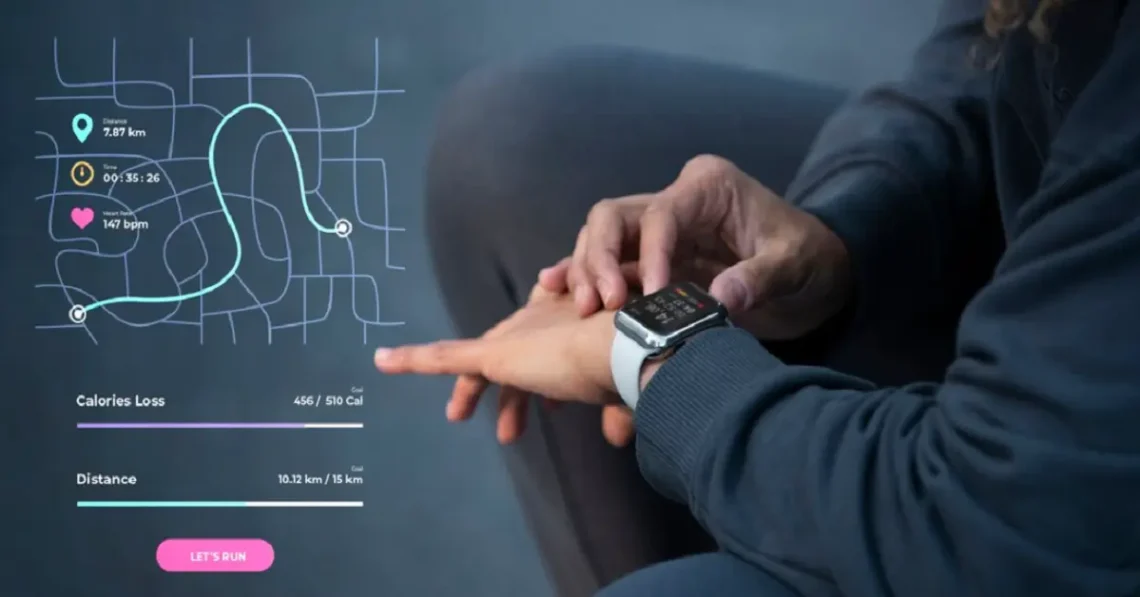Imagine standing at the intersection of a busy city, where Privacy Street and Efficiency Avenue meet. You’re in the world of GPS tracking in time clock apps, a world that is increasingly becoming a tightrope walk between these two streets.
Time clock app with gps offers tantalizing efficiency gains, with promises of streamlined operations, enhanced productivity, and improved accountability. Yet, the specter of privacy concerns looms large, casting long shadows over these benefits.
Legally, ethically, and practically, how can you navigate this complex intersection without falling foul of privacy laws or eroding trust with your employees? The answer isn’t as straightforward as you might think, and we’re about to embark on a journey to uncover it.
Key Takeaways
- GPS tracking in time clock apps offers benefits such as improved timekeeping and increased accountability.
- Privacy concerns surrounding GPS tracking include issues of consent, misuse of data, data security, and respecting boundaries between work and personal time.
- Legal implications of GPS monitoring include the need for notification and consent, responsible use of information, data protection, and clear policy implementation.
- The ethics of using GPS in time clock apps involve balancing benefits and privacy, transparency in communication, avoiding misuse, respecting personal boundaries, and engaging in open dialogue.
Understanding GPS Tracking in Time Clock Apps
To get the hang of GPS tracking in time clock apps, it’s essential to first understand what it is and how it functions. GPS, or Global Positioning System, utilizes a network of satellites to pinpoint precise locations on Earth. When integrated into time clock apps, it allows employers to monitor employees’ locations during work hours. This isn’t about mistrust, but rather about ensuring that everyone is where they’re supposed to be, doing their jobs efficiently.
Imagine you’re a construction manager overseeing multiple sites. You can’t be everywhere at once, but with GPS tracking, you can ensure your crew is on-site, on time. Moreover, GPS tracking automates timekeeping, eliminating manual punch-ins and punch-outs. This means no more guesswork or errors in time recording, leading to accurate payroll.
However, it’s not all about oversight. For employees in the field, GPS tracking offers safety. If there’s an emergency, your location can be quickly identified.
In essence, GPS tracking in time clock apps is a tool for efficiency, accuracy, and safety. By understanding its operations, you can leverage its benefits while respecting privacy boundaries.
The Efficiency Gains of GPS Tracking
Employing GPS tracking in your time clock apps can significantly enhance your operational efficiency. It streamlines timekeeping, improves accountability, and boosts productivity, all while saving you time and money.
Let’s delve into the specific efficiency gains you can reap from GPS tracking:
- Improved Timekeeping: With GPS enabled, you’ll eliminate manual time entries, reducing errors and ensuring accurate records. This efficiency means you’re only paying for hours actually worked.
- Increased Accountability: GPS tracking lets you see exactly where your employees are during their work hours, enhancing accountability and discouraging time theft.
- Boosted Productivity: Knowing their location is tracked can motivate employees to stay focused, increasing productivity.
- Optimized Scheduling: Real-time location data can help you manage employee assignments efficiently, ensuring you’re deploying resources where they’re most needed.
- Reduced Administrative Tasks: By automating time tracking, you’re reducing the time spent on administrative tasks, freeing up resources for more important work.
Incorporating GPS tracking in your time clock apps isn’t just about monitoring employees. It’s about improving efficiency, saving time, and maximizing your labor resources. Remember, it’s not about control, but about optimizing your operations.
Key Privacy Concerns Surrounding GPS Tracking
While GPS tracking in time clock apps can be a game-changer for operational efficiency, it’s crucial to address the key privacy concerns that come with it. You might be wondering what these concerns are.
Firstly, there’s the issue of consent. Employers must ensure that employees are aware of and consent to the use of GPS tracking. Without this, you’re potentially infringing on their rights.
Secondly, there’s the matter of misuse. GPS tracking data can be used inappropriately, such as for stalking or harassment. It’s essential for companies to implement safeguards to prevent this.
Then, we’ve data security. How secure is GPS data? Can it be hacked? If so, the implications could be dire, ranging from identity theft to physical danger.
Lastly, there’s the question of boundaries. When does work end and personal time begin? Without clear policies, GPS tracking could lead to unwarranted surveillance, infringing on employees’ right to privacy.
Legal Implications of GPS Monitoring
Navigating the legal landscape of GPS monitoring can be tricky, so it’s worth understanding the potential implications for your business. You must ensure you’re not infringing on employees’ privacy rights while benefiting from the efficiency that GPS tracking provides.
To help, here are some key legal factors to consider:
- Notification: Make sure you’ve informed your employees about the GPS tracking in their time clock apps. It’s not just about transparency; it’s legally required in many jurisdictions.
- Consent: In some cases, you may need explicit consent from your employees before tracking their location.
- Use of Information: Be careful about how you use the data collected. Misuse can lead to legal issues related to privacy invasion.
- Data Protection: You’re responsible for the security of the data collected. Breach of this information could result in hefty fines and penalties.
- Policy Implementation: Implement clear and precise policies regarding GPS monitoring. This can protect you from potential legal disputes.
The Ethics of Using GPS in Time Clock Apps
Beyond the legal implications, it’s important to consider the ethical aspects of using GPS tracking in time clock apps. You need to balance the benefits of enhanced productivity, efficiency, and accountability with the potential intrusion into your employees’ privacy.
It’s crucial to respect the personal boundaries of your team while utilizing a tool that could, if misused, create an atmosphere of distrust. Transparency is key. Before implementing a GPS-enabled time clock app, it’s advisable to openly discuss its uses, benefits, and limitations with your employees.
You should also consider the possibility of misuse. Just because the technology is available, doesn’t mean it should be used to monitor an employee’s every move. Instead, use it judiciously, focusing only on job-related activities, and ensure that tracking ceases outside work hours.
Balancing Benefits and Concerns of GPS Use
To ensure the successful implementation of GPS tracking in time clock apps, it’s vital to strike a balance between the potential benefits and the concerns raised by your employees. You must consider both sides of the equation.
On one hand, GPS tracking can bring numerous benefits to your organization. It can improve efficiency, accountability, and transparency.
- Efficiency: GPS tracking can streamline operations and eliminate the potential for timesheet fraud.
- Accountability: GPS data can hold employees accountable for their location during work hours.
- Transparency: GPS tracking provides clear, objective data, fostering an environment of trust and honesty.
On the other hand, it could potentially infringe upon your employees’ privacy, leading to a decline in trust and morale.
- Privacy concerns: It’s crucial to respect employees’ privacy rights and to implement GPS tracking in a manner that respects these rights.
- Trust issues: Overzealous tracking can erode trust between management and employees, potentially leading to a decline in morale and productivity.
Balancing these benefits and concerns isn’t easy, but it’s necessary. By engaging in open dialogue with your employees and developing clear, fair policies, you can navigate the challenges that come with implementing GPS tracking in time clock apps.
Navigating Employee Consent for GPS Tracking
When it comes to incorporating GPS tracking in your time clock app, obtaining employee consent is a critical step you can’t afford to overlook. It’s not just about complying with legal requirements; it’s about fostering an environment of trust and transparency in your workplace.
You should clearly explain why this technology is being introduced and how it’ll be used. Will it only monitor hours worked or also track location during work hours? Clarity here can help alleviate concerns about privacy invasion.
Once you’ve laid out the purpose, provide written consent forms for employees to sign. This isn’t just a formality – it’s a chance for employees to ask questions and for you to respond with openness. Encourage dialogue; this can help dispel fears and confusion.
Remember, consent isn’t a one-time thing. If your use of the GPS tracking changes, you’ll need to seek fresh consent. Regularly review your GPS tracking policy to ensure it remains fair and respectful of employee rights.
In short, navigating employee consent for GPS tracking is all about communication, clarity, and respect for privacy. It’s a delicate balance but one that’s essential for maintaining trust and morale in your team.
Implementing Transparent GPS Use Policies
Having secured employee consent for GPS tracking, your next step is crafting and implementing clear, transparent GPS use policies. These policies shouldn’t only comply with local and national laws but also respect the privacy of your employees.
To create an effective and transparent policy, you need to consider several factors:
- Purpose of GPS tracking: Clearly state the purpose of the GPS tracking. It could be for enhancing productivity, improving safety measures, or ensuring compliance with work hours.
- Data Collection Limitations: Inform your employees about the type and extent of data you’ll be collecting.
- Data Access and Use: Specify who’ll have access to the data and how it will be used.
- Data Security Measures: Assure your employees that their data is safe. Explain what steps you’re taking to protect it.
- Policy Updates: Finally, commit to updating the policy as needed and notifying employees of any changes.
You must ensure these policies are communicated effectively to all employees. It’s important that they understand and are comfortable with how their data is being used.
A transparent GPS use policy can make a significant difference in building trust among your teams.
Best Practices for Ethical GPS Use
Now that you’ve set up a clear GPS use policy, let’s dive into the ethical practices you should follow to maintain trust and respect with your employees.
First and foremost, only track during work hours. It’s crucial to respect employees’ off-duty time. Use GPS data exclusively for work-related purposes and avoid monitoring personal activities.
Second, limit data access. Only authorized personnel should have access to GPS tracking data. This will ensure employees’ privacy and prevent misuse of information.
Third, keep communication open. Regularly remind your team about the GPS policy and its purpose. Make sure they understand it’s for efficiency and safety, not to invade their privacy.
Next, properly dispose of old data. Don’t hoard information indefinitely. Set a reasonable timeframe for data retention and stick to it.
Lastly, consider employees’ feedback and concerns. Their input can help refine your GPS use policy to make it more acceptable and less intrusive.
Future Developments in GPS and Time Tracking
Let’s explore the potential advancements in GPS and time tracking technology that could revolutionize the way you manage your workforce. As technology rapidly evolves, the future holds exciting enhancements that could redefine workplace efficiency and provide a balance between privacy and productivity.
Here are five potential developments:
- Real-time tracking: This would allow you to monitor your team’s productivity and location in real-time, enhancing efficiency and accountability.
- AI integration: Artificial Intelligence could analyze tracking data to provide predictive insights about workforce trends and behaviors.
- Improved accuracy: Future GPS technology may offer even more precise location tracking, enabling accurate geofencing and detailed route histories.
- Privacy settings customization: Employees might be able to customize their privacy settings, allowing them more control while maintaining necessary transparency for employers.
- Bio-metric time tracking: Combining GPS with biometric data could ensure employee identity verification, reducing time theft and fostering a culture of integrity.
Conclusion
Navigating GPS tracking in time clock apps requires a delicate balance. You have to respect privacy, while harnessing its efficiency. It’s vital to understand legal implications, consider ethics, and secure employee consent.
Implement transparent policies and follow ethical GPS use practices. Stay tuned to future developments to adapt and evolve.
Remember, when done right, GPS tracking can be a powerful tool for your business’s growth.





